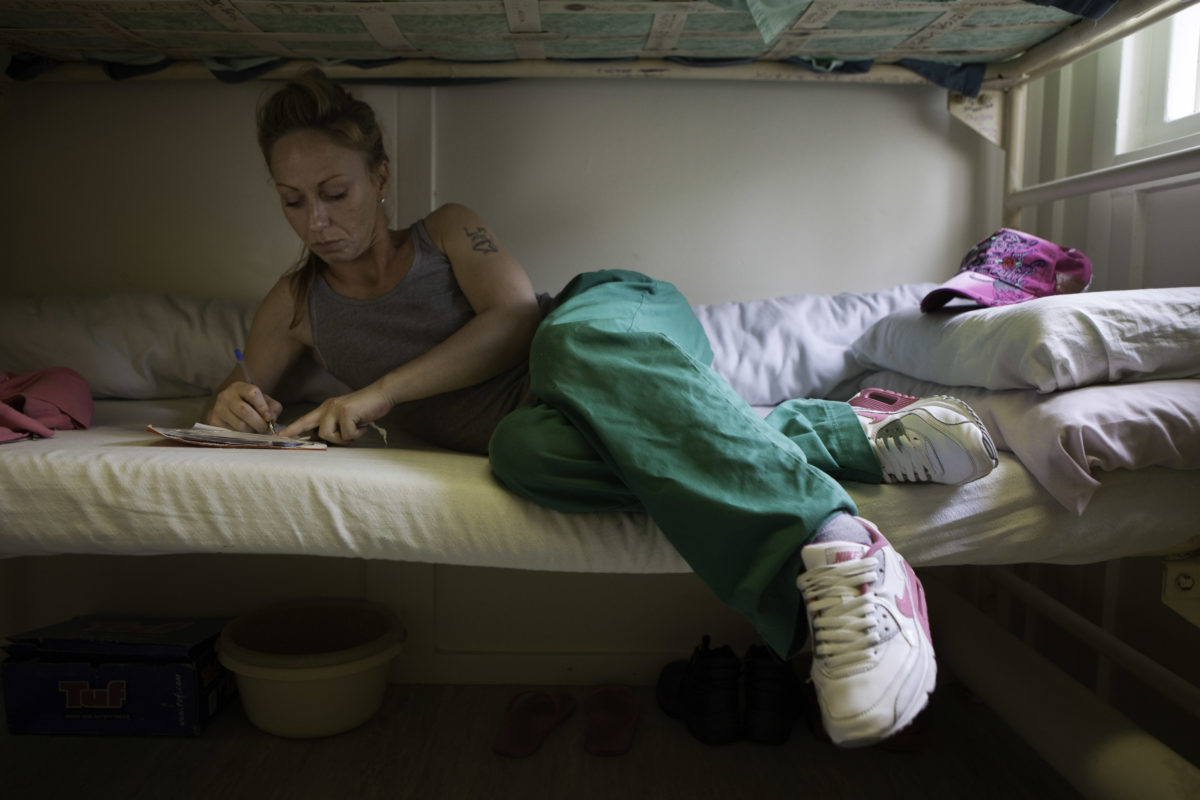Six out of 10 women in prisons are serving sentences of less than a year, leaving the small minority of ‘invisible women’ left on long determinate or indeterminate sentences whose experience is little understood. A new briefing published by the Prison Reform Trust on its work exploring how long-term imprisonment, 10 years or more in custody), affects women revealed that the number of women serving indeterminate sentences has almost tripled in the last 30 years.
According to PRT, campaigners have tended to focus on the damage of imprisonment with the relatively non-serious nature of most women’s offending. ‘Many women in prison are serving sentences for non-violent offences, with the majority (70%) receiving sentences of less than 12 months,’ the group says. Consequently, reform campaigns have focused on efforts to divert those women away from custody. ‘However, their urgency should not lead to the needs of those serving longer sentences for more serious offences being overlooked,’ PRT says. ‘The lack of visibility of women serving long prison sentences in policy and advocacy debates means their experiences are not fully recognised.’
The proportion of the women’s prison population who are serving indeterminate sentences declined overall from 6% to 4% between 1991 and 2005, before nearly doubling from 6% to 10% between 2005 and 2013, and remaining roughly constant since then. During the whole thirty-year period, the number of women in prison serving an indeterminate sentence has grown from 96 in 1991, to 328 in 2021.
Past histories of trauma are common for women in prison, however those serving long sentences can be victims of repeat traumatisation while in custody. In a study of women serving life sentences, six out of 10 reported histories of sexual abuse, eight out of 10 had experienced physical abuse and more than half had been victims of both sexual and physical abuse (54%).
The prison experience of pat downs and strip searches can be extremely distressing for survivors of abuse. As one woman serving a life sentence at HMP Styal said: ‘Women have been subject to various forms of abuse but some officers don’t take this into consideration and are often kicking your cell door to frighten you, they walk in without knocking or they will knock and still walk in when you’ve asked them to wait because you are in a state of undress.’
For mothers in prison, having little contact with their children can be painful, also the process of separation that takes place at the end of every face-to-face visit causes extreme distress for both mothers and their children. Women are also held in prisons far from their hometowns with the average distance being 63 miles, the travelling costs can reduce the number prison visits available which is even more difficult for women serving longer sentences.
One woman serving life reported only seeing her mother four times in 14 years.
Women serving these long sentences have to constantly prove that they are rehabilitating and their risk has reduced. This can mean being transferred to prisons further form home for access to interventions and courses needed. They also worry about appearing weak and as if they are not coping well as it can have an impact on their progression.
Another woman serving a life sentence in the community told researchers: ‘Because you’re a lifer, you’re frightened to show that you’re weak, because it will be used against you. It will come up in your parole report “she wasn’t coping well, she’s self-harmed, she has suicidal thoughts” – you know, so you tend to lean on other inmates to get you to a better place.’







